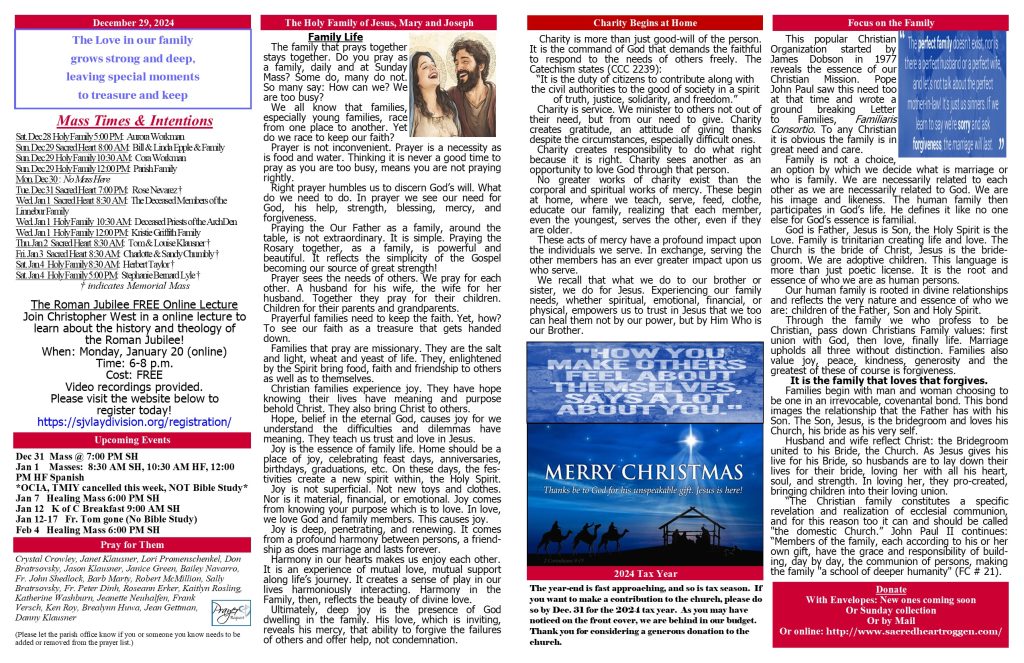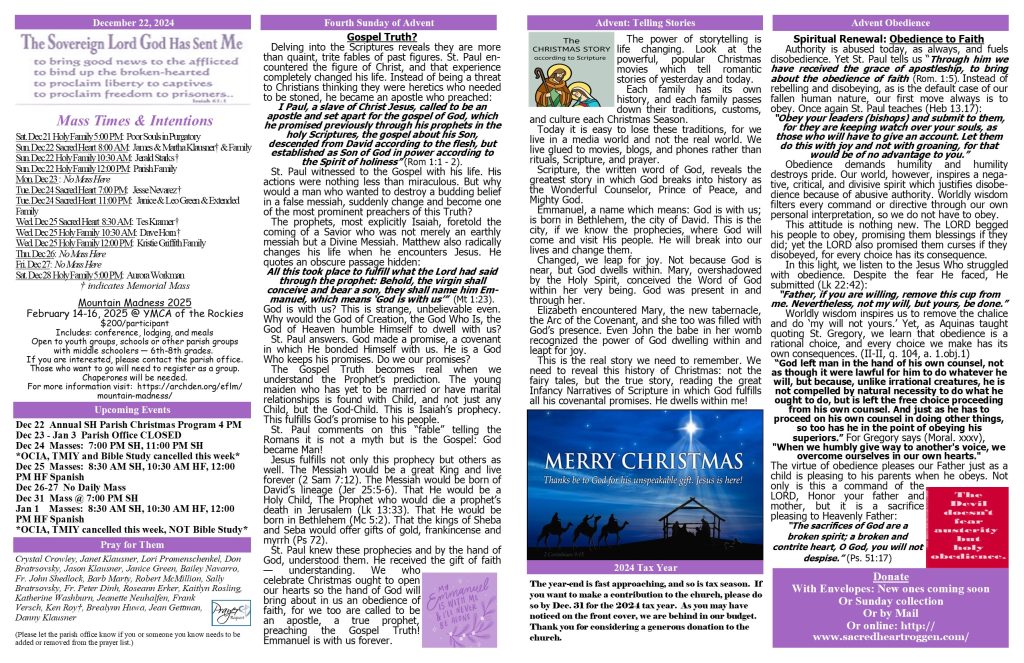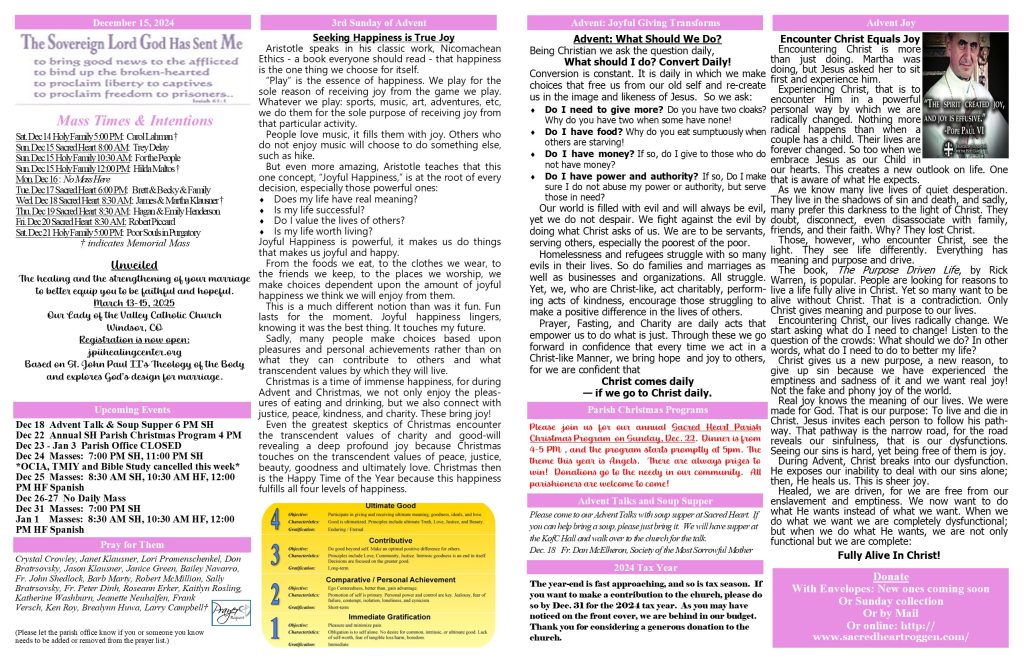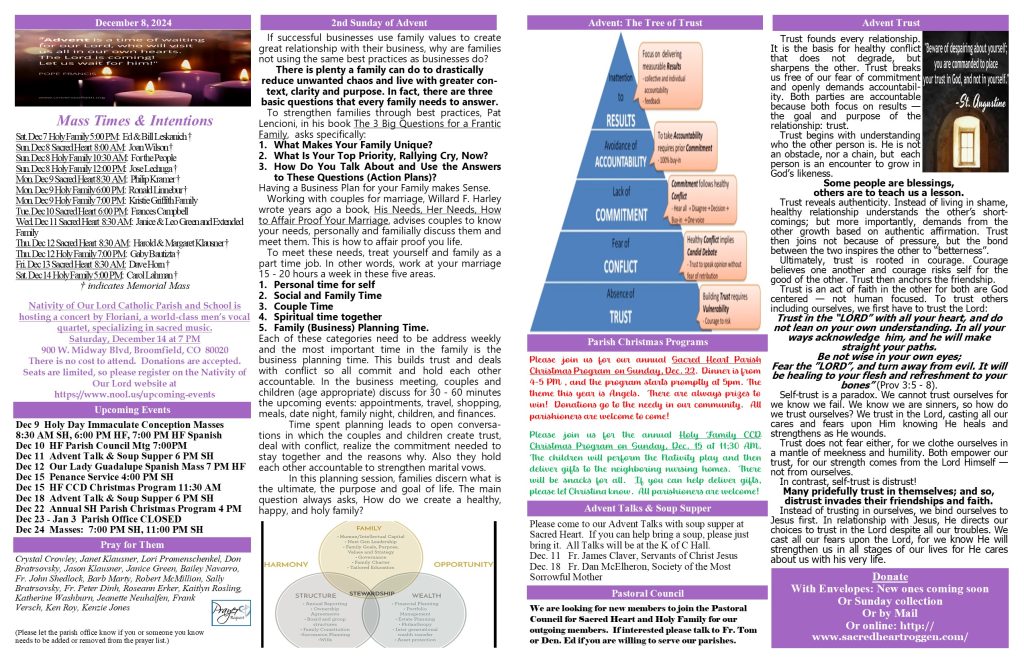Family Life
The family that prays together stays together. Do you pray as a family, daily and at Sunday Mass? Some do, many do not. So many say: How can we? We are too busy?
We all know that families, especially young families, race from one place to another. Yet do we race to keep our faith?
Prayer is not inconvenient. Prayer is a necessity as is food and water. Thinking it is never a good time to pray as you are too busy, means you are not praying rightly.
Right prayer humbles us to discern God’s will. What do we need to do. In prayer we see our need for God, his help, strength, blessing, mercy, and forgiveness.
Praying the Our Father as a family, around the table, is not extraordinary. It is simple. Praying the Rosary together, as a family, is powerful and beautiful. It reflects the simplicity of the Gospel becoming our source of great strength!
Prayer sees the needs of others. We pray for each other. A husband for his wife, the wife for her husband. Together they pray for their children. Children for their parents and grandparents.
Prayerful families need to keep the faith. Yet, how? To see our faith as a treasure that gets handed down.
Families that pray are missionary. They are the salt and light, wheat and yeast of life. They, enlightened by the Spirit bring food, faith and friendship to others as well as to themselves.
Christian families experience joy. They have hope knowing their lives have meaning and purpose behold Christ. They also bring Christ to others.
Hope, belief in the eternal God, causes joy for we understand the difficulties and dilemmas have meaning. They teach us trust and love in Jesus.
Joy is the essence of family life. Home should be a place of joy, celebrating feast days, anniversaries, birthdays, graduations, etc. On these days, the festivities create a new spirit within, the Holy Spirit. Joy is not superficial. Not new toys and clothes. Nor is it material, financial, or emotional. Joy comes from knowing your purpose which is to love. In love, we love God and family members. This causes joy.
Joy is deep, penetrating, and renewing. It comes from a profound harmony between persons, a friendship as does marriage and lasts forever.
Harmony in our hearts makes us enjoy each other. It is an experience of mutual love, mutual support along life’s journey. It creates a sense of play in our lives harmoniously interacting. Harmony in the Family, then, reflects the beauty of divine love.
Ultimately, deep joy is the presence of God dwelling in the family. His love, which is inviting, reveals his mercy, that ability to forgive the failures of others and offer help, not condemnation.




